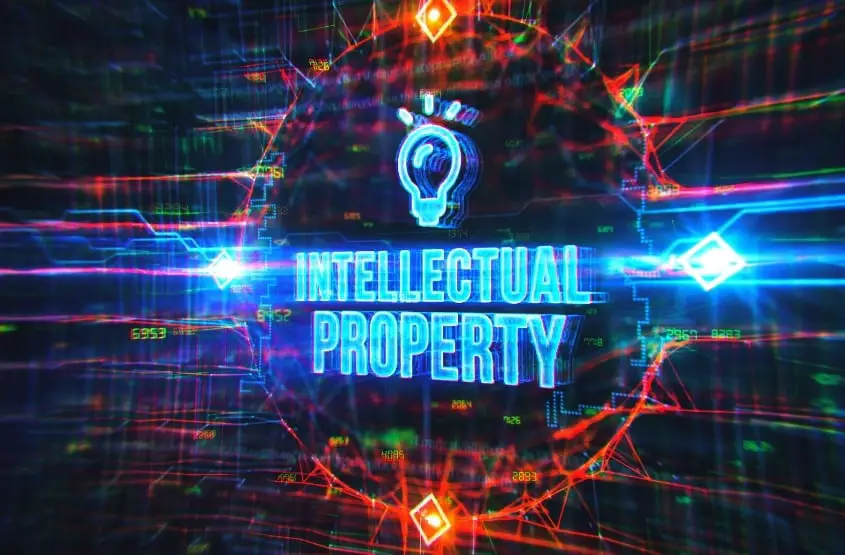As we venture through the realm of non-fungible tokens, there are many questions that need answered. One very important aspect you should consider as an NFT collector and creator are your rights. So, what are your rights when it comes to purchasing your own NFTs?
As an NFT holder, you are only granted to the rights described within the terms of the smart contract written into your non-fungible token. All other rights are strictly owned by the creator. Contact the creator if additional rights are desired.
The common misconception it that when you purchase an NFT, you own all the rights to the intellectual property tied to that NFT. This is not the case. Your rights as token holder are strictly limited to what is described within the terms of the smart contract. Just because you purchase a beautiful piece of artwork doesn’t mean you own the artwork itself, unless otherwise stated in the smart contract.
If you are an NFT creator, it’s important to ensure you include your terms in the smart contract of your NFT. Here are some terms you may want to include when minting your own non-fungible token:
- What does the token holder receive?
- What does the token holder own?
- What are the token holder’s rights as owner?
- Are there any limitations as to what can be done with the content?
Being specific and transparent when creating terms for your NFT makes it easier for the consumer to understand exactly what they are purchasing.
Are NFTs Protected By Copyright?

An NFTs intellectual property is protected by copyright. The copyright refers to the legal right of the NFT owner’s intellectual property. All NFT creators are subject to sections 107 to 122 of 17 U.S. Code § 106 – Exclusive rights in copyrighted works. The NFT creator has the exclusive rights to do and to authorize any of the following:
- Reproduce
- Prepare derivative works
- Distribute copies
- Perform the copyrighted work publicly
- Display the copyrighted work publicly
Source
Just because you own the NFT doesn’t mean you own the intellectual property of that NFT. If you want to use any images, logos, designs etc. — associated with your NFT on your own merchandise or display them on a third-party platform, you technically need to attain additional rights for those specific images.
Moreover, if you lack copyright ownership of a digital image associated with your NFT, this may affect your ability to legally resell that non-fungible token. Although there is the first sale doctrine in place for physical goods, there is no such doctrine in place for digital assets such as non-fungible tokens in the current copyright law. Source
Do You Own The Rights To An NFT?
Owning your own NFT is exciting! But that doesn’t mean you own all the rights tied to your NFT.
The only rights you own as an NFT holder are the rights that are written into the smart contract and the digital token itself. You do not own the intellectual property associated with your NFT unless the creator has specifically stated so.
I know what you’re thinking. How do you not own the rights to something you just purchased? It’s quite simple. For example; just because you purchase a music album doesn’t mean you can use the music commercially or sell your own albums made up of the same songs. You are simply able to listen to the album, that’s it.
So, before purchasing your next non-fungible token. Make sure you understand what it is that you are buying, otherwise you may be extremely disappointed.
Can You Get Sued For Improper Use Of NFTs?
One major elephant in the room when it comes to NFTs is the possibility of being sued. Is it possible that you could be sued for improper use or creation of your own non-fungible tokens?
It is possible you could be sued for improper use of an NFT or any intellectual property associated with your NFT. If you are a NFT creator, make sure you are not creating NFTs using someone else’s copyrighted content. Likewise, if you the NFT holder, do not use your NFT in a way that may violate the terms.
When creating and collecting NFTs, it’s important to consider the potential consequences you may face if you are using your tokens in a way that could violate the terms. Treat your non-fungible tokens the same way you would treat any other branded product you buy at the store. If you respect the intellectual property of every NFT you own and create, then you will likely experience no issues.
Bringing It All-together.
When it comes to creating and collecting your own non-fungible tokens it’s important to take into consideration the legal aspects which many people don’t think about. You don’t actually own any rights to your NFT unless the creator has otherwise stated so in the terms. The only thing you own is the non-fungible token itself, which is a transaction recorded on the blockchain and represents another asset located elsewhere.
As an NFT creator, it’s very important you provide ample information regarding the terms and conditions of the NFT you are selling to your consumers. Not only will this help protect you and your copyright, but it will also allow an easy and transparent transaction between you and your consumer.
If you are holder of an NFT and you want to use the copyrighted content in a way which may violate the terms, reach out to the creator to request more information regarding your limitations as the token holder.
If you have any questions regarding copyright laws and your NFTs, it’s best that you seek professional help from a reputable law firm. I am not a legal professional. My content is strictly for entertainment purposes and although I do in-depth research, I recommend contacting a lawyer if you are in need of legal help.

4 thoughts on “Your Rights As An NFT Holder Explained.”
Comments are closed.